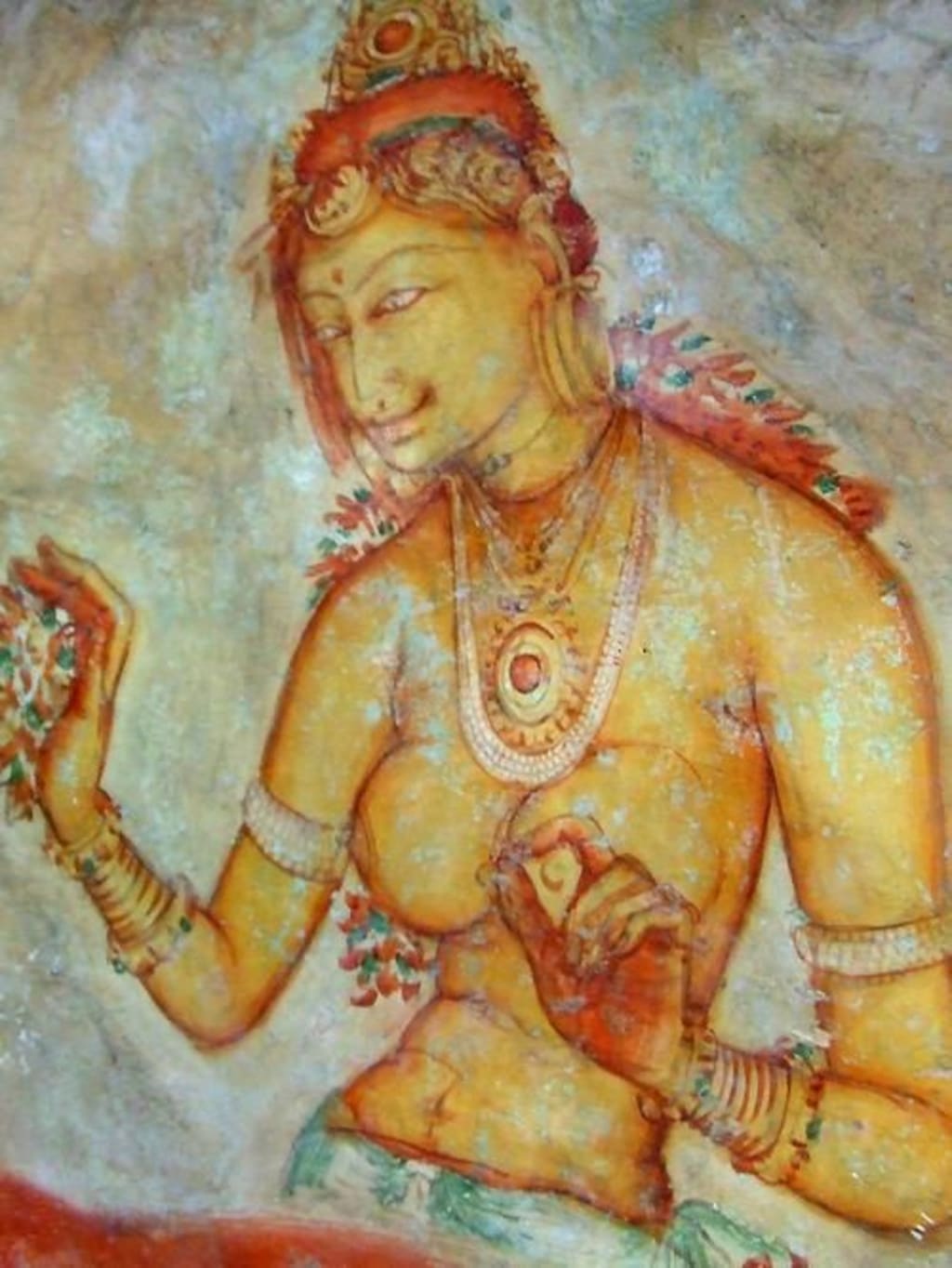Apparently, Sri Lanka’s Anula of Anuradhapura Murdered Her Way Into Power
What Can We Learn From a Historical Murderer?

At times, female politicians seem to be a relatively new phenomenon. For example, Khertek Anchimaa-Toka was the first non-hereditary female head of state, ruling the Tuvan People's Republic from 1932 to 1973. However, let's not forget that not all politicians — be they male or female — are elected. Ruling from 47 to 42 BC, Sri Lanka's Anula of Anuradhapura would be an example of someone who inherited her position. Or, if you want to put it another way, she seemed to have murdered her way into power. Yes, Anula of Anuradhapura is apparently what some used to call a "murderess." Indeed, Anula is often considered a serial killer, killing 4 or 5 husbands (Or is it 6? It seems to be different with every source I find),
To be fair, though, history is absolutely brimming with murderous leaders, right up to the present day, so I personally wouldn't bother denouncing her as especially evil. I'm by no means a professional historian, but to say that Anula was totally unique would be factually incorrect, among other things. Anula of Anuradhapura was most certainly not a killer due solely to her gender, but instead due to the nature of power. Also, as an article by Ria Rameez notes, history has paid more positive attention to “Sri Lanka’s great kings” than it has to female royalty. The same article notes, "Anula poisoned her way through six husbands and is said to have kept a whopping thirty-two palace guards for the sole purpose of satisfying her sexual desire. Yet on the flip side, her atrocities pale next to those committed by some of her male counterparts, which begs the question: why is she the only one vilified?"
The Focus on Gender
While these are all fair observations, it's nevertheless important to note a lot of possible implications to Anula's story. First, the focus on gender has probably always been misguided, though we continue doing it for sake of convenience. Apparently, for whatever reason, it's simply easier to grapple with issues of gender than to focus on the simpler premise of murder/warfare being wrong.
This is why sexism (and, for that matter, even anti-sexism) has always been rife with irony due to exaggerating the significance of genitalia. A regular premise offered by skeptics of female politicians is that they're just not tough enough. Well, okay, but what is "tough", and is it something we should really want all that much? If you look at the sheer lunacy common to history (again, murder, warfare and the like), it's pretty easy to see limits to the premise of toughness.
Second, in the case of Anula, we're probably supposed to assign special significance to her royal, male victims, whose deaths meant her ascendance to the throne. That's all fair and possibly interesting, but what about the other violent aspects of such a political dynasty? Maybe we can fairly see her as a "black widow" type, but that obviously shouldn't let the other royals off the hook. If anything, Anula is probably just a curious case among many. Ria Rameez argues that King Valagamba "slew his own minister for not bowing to him" and King Kashyapa had as many as 500 concubines!
Comparison
While history is of interest to scholars and theologians, it's also a dirty, violent, twisted thing that, if told honestly, appeals to the very lowest common denominator in entertainment value. Yes, some people are given power — either elected, inherited or through some strange ordination — but this lust to govern is often just a sick thing, almost right down to the core. It can only be tamed for so long before something crazy inevitably happens. Anula was, in some respects, merely fitting in.
In fact, similar things may even be said of even more well-known and notorious women like Countess Elizabeth Báthory, the Hungarian noblewoman and serial killer. While her victims were many (some claim up to 600!), so are those victims of warfare, gang violence and, in some cases, incarceration (Stalin's gulags, Hitler's concentration camps, for well-tread examples). In other words, these women certainly deserve some notoriety, but no more so than any male ruler who would want their opponents vanquished.
What Lessons Can We Learn From Anula?
Many feminists won't want to hear this, but it's sort of an obvious point that flows freely: Based on this example alone, it's unlikely that women are going to save the world. Sorry! Yes, it may be frustrating to draw such a point from just one example, but one example may be all it takes. Are women totally incorruptible? Nope. Are they incapable of violence? Nope. Are they always better, more fair leaders than any man one could imagine ruling in their place? Nope. Are they never depraved perverts? Even on that one, it's still a nope. In other words, the idea of an all-wise, all-knowing and hyper-moralistic matriarchy is naïve at best, and mostly for the same reasons we shouldn't desire patriarchy, either.
For that matter, we shouldn't really want to be ruled by anybody, especially as social media regularly reminds us just how lousy people can be. Were you in a position of power like Anula's, would you be totally tame? Maybe you wouldn't do exactly as she did, but some heads might roll if you felt the lack of consequences. So, relax, as my point is not especially about women, or even about special cases like Anula. You should not want me to be a ruler, either. I could also become a brute, especially if I have something to prove. Why take the risk?
A person might even start out relatively modest in their intentions. However, remember that old saying: The road to Hell is paved with good intentions. On that note, someone like Anula is almost like a bump in the long, winding road of history. However, it is perhaps enlightening to look at her to remember that, quite often, "great leaders" end up living in whorehouses and offing lots of people. No big whoop.
Historical Source
If you want more information on Anula, it's clear that the best (if not only) source is Mahāvaṃsa, or The Great Chronicle. Here are two noteworthy sections: One, Two.
As with Countess Báthory, we can obviously question the historical accuracy of claims. However, even if some details are false, they can still provide food for thought and possibly even inspire us to question the legitimacy of unbridled power.
About the Creator
Wade Wainio
Wade Wainio writes stuff for Show Snob, Undead Walking, Pophorror.com, Vents Magazine and Haunted MTL. He is also an artist, musician and college radio DJ for WMTU 91.9 FM Houghton.






Comments
There are no comments for this story
Be the first to respond and start the conversation.